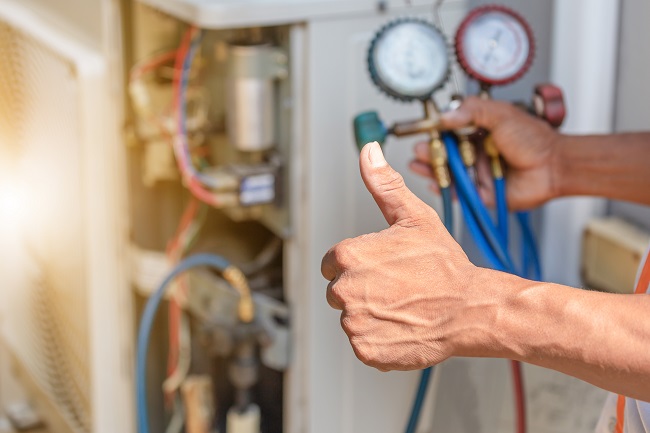The Cost of Replacing an Old HVAC System vs. Ongoing Repairs
When it comes to maintaining the comfort of your home, the HVAC system plays a vital role. However, like any mechanical equipment, HVAC systems can experience wear and tear over time. As homeowners, it’s essential to weigh the pros and cons of replacing an old HVAC system versus opting for ongoing repairs. In this blog post, we’ll explore the cost implications of each option, helping you make an informed decision. As your trusted HVAC experts, Wayne Price Heating & Air Conditioning is here to guide you through the process.

Understanding the Lifecycle of an HVAC System:
Before we delve into the cost comparison, let’s understand the typical lifecycle of an HVAC system. On average, a well-maintained system can last between 15 to 20 years. However, several factors can influence this estimate, such as the quality of installation, usage patterns, and regular maintenance.
Signs It’s Time to Consider Replacement:
a. Frequent Repairs: If your HVAC system is constantly breaking down, requiring expensive repairs, it may be a sign that it’s reaching the end of its lifespan.
b. Decreased Efficiency: As HVAC systems age, they become less efficient, resulting in higher energy bills. If you notice a significant increase in your utility costs, it might be time for an upgrade.
c. Outdated Technology: Older systems may lack the advanced features and energy-saving capabilities found in modern HVAC units. Upgrading can improve your home’s comfort and energy efficiency.
The Cost of Ongoing Repairs:
a. Short-Term Savings: Opting for repairs instead of replacement may seem cost-effective initially, as you’re only paying for the immediate fix. However, these expenses can add up over time, especially if the repairs become more frequent or involve major components like compressors or heat exchangers.
b. Unpredictable Expenses: Repair costs can be unpredictable and may arise at inconvenient times. Emergency repairs can lead to unexpected financial burdens, causing unnecessary stress.
The Financial Benefits of Replacement:
a. Energy Efficiency: Newer HVAC systems are designed to meet higher energy efficiency standards, which can significantly reduce your utility bills. Over time, the energy savings can offset the initial investment.
b. Warranty Coverage: HVAC manufacturers typically offer warranties for new systems, providing you with peace of mind and potential cost savings if any issues arise.
c. Rebates and Incentives: In some cases, government incentives or utility company rebates may be available to encourage homeowners to upgrade to more energy-efficient systems. These incentives can help offset the cost of replacement.
Wayne Price Heating & Air Conditioning: Your Trusted Partner:
When it comes to making a decision about repairing or replacing your HVAC system, consulting with professionals is crucial. At Wayne Price Heating & Air Conditioning, we understand the complexities of HVAC systems and can provide expert advice tailored to your specific needs. Our experienced technicians will conduct a thorough assessment of your system and offer transparent recommendations, considering factors such as the age of your unit, repair history, and overall efficiency.
Choosing between replacing an old HVAC system and ongoing repairs requires careful consideration of various factors, including costs and long-term benefits. While repairs may seem like a more affordable option initially, the expenses can quickly accumulate, and the system’s overall performance may continue to decline. On the other hand, investing in a new HVAC system can lead to increased energy efficiency, improved home comfort, and potential cost savings over time. Trust the expertise of Wayne Price Heating & Air Conditioning to guide you through this decision-making process and ensure your home’s HVAC needs are met effectively. Contact us today!
